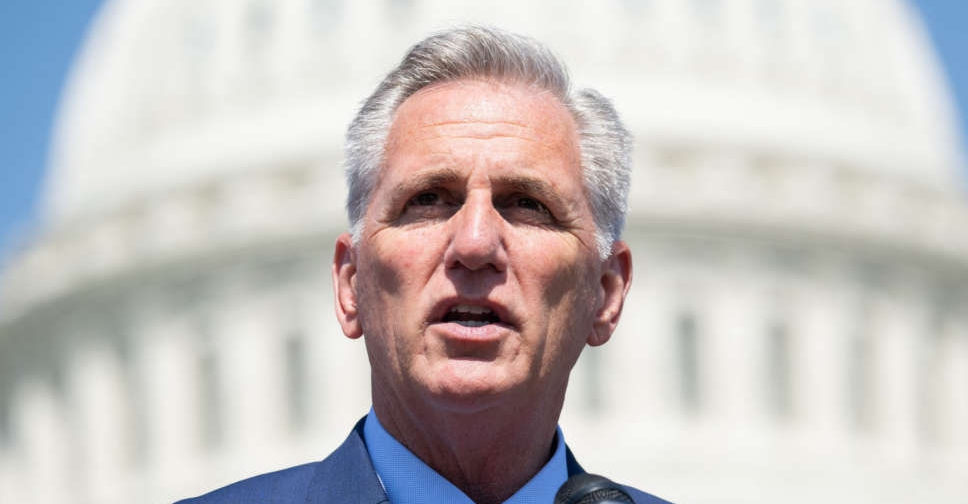
Republican US House Speaker Kevin McCarthy said lawmakers would vote on Wednesday on a bill to raise the $31.4 trillion federal debt ceiling and slash spending, despite lingering dissension within their ranks over the measure.
Republican leaders in the House of Representatives approved changes to the bill overnight aimed at assuaging Midwestern Republican concerns about biofuel tax credits and conceding to hardliners' calls to toughen work requirements for some low-income Americans.
McCarthy told reporters on Wednesday morning that the House would vote later in the day. He did not say if he had the 218 votes needed to pass the legislation: "I don't want to take all your anticipation away."
McCarthy can afford to lose just four votes from his narrow 222-213 majority if he is to pass the bill, a move he has described as critical to force Democratic President Joe Biden to negotiate spending cuts as a condition of raising the debt ceiling. Failure to act could trigger a catastrophic default.
There were signs that the concerns which had dogged the package were beginning to wane.
Representative Zach Nunn of Iowa told reporters that his state's four-member congressional delegation could support the legislation, pending a review of the changes on biofuels, which he described as "a sea change from where we were just 24 hours ago."
Another critic of the bill, hardline House Freedom Caucus Chairman Scott Perry, said he and other conservatives who had held out for changes to work requirements were ready to move forward. "I'll be a yes," he told reporters.
Representative Kevin Hern, chairman of the 175-member Republican Study Committee, welcomed the changes, which he said most Republicans would support.
"They feel pretty confident that they've answered all the questions and have gotten to a place where we can have a vote," Hern said.
The overnight changes removed a provision that would have ended a tax credit for biofuels that was part of Biden's climate change initiatives in the 2022 Inflation Reduction Act.
Bending to the far-right wing of the party, Republicans also accelerated some new, tougher work requirements for receiving Medicaid healthcare benefits for the poor.
"The new plan is even more draconian ... even more mean. Kicking poor people off of healthcare wasn't enough. They now want to do it faster," said Representative Jim McGovern, the senior Democrat on the House Rules Committee.
House Republicans are offering to increase Washington's borrowing authority by $1.5 trillion or until March 31, whichever comes first. The bill would pare spending to 2022 levels and then cap growth at 1 per cent a year, repeal some tax incentives for renewable energy and stiffen work requirements for some antipoverty programs. Even if it passes the House, it is not seen winning approval in its current form in the Democratic-controlled Senate.



 Nasdaq set to confirm bear market as Trump tariffs trigger recession fears
Nasdaq set to confirm bear market as Trump tariffs trigger recession fears
 Dana Gas and Crescent Petroleum exceed 500M boe in Khor Mor field
Dana Gas and Crescent Petroleum exceed 500M boe in Khor Mor field
 China to impose tariffs of 34% on all US goods
China to impose tariffs of 34% on all US goods
 Shares bruised, dollar crumbles as Trump tariffs stir recession fears
Shares bruised, dollar crumbles as Trump tariffs stir recession fears



